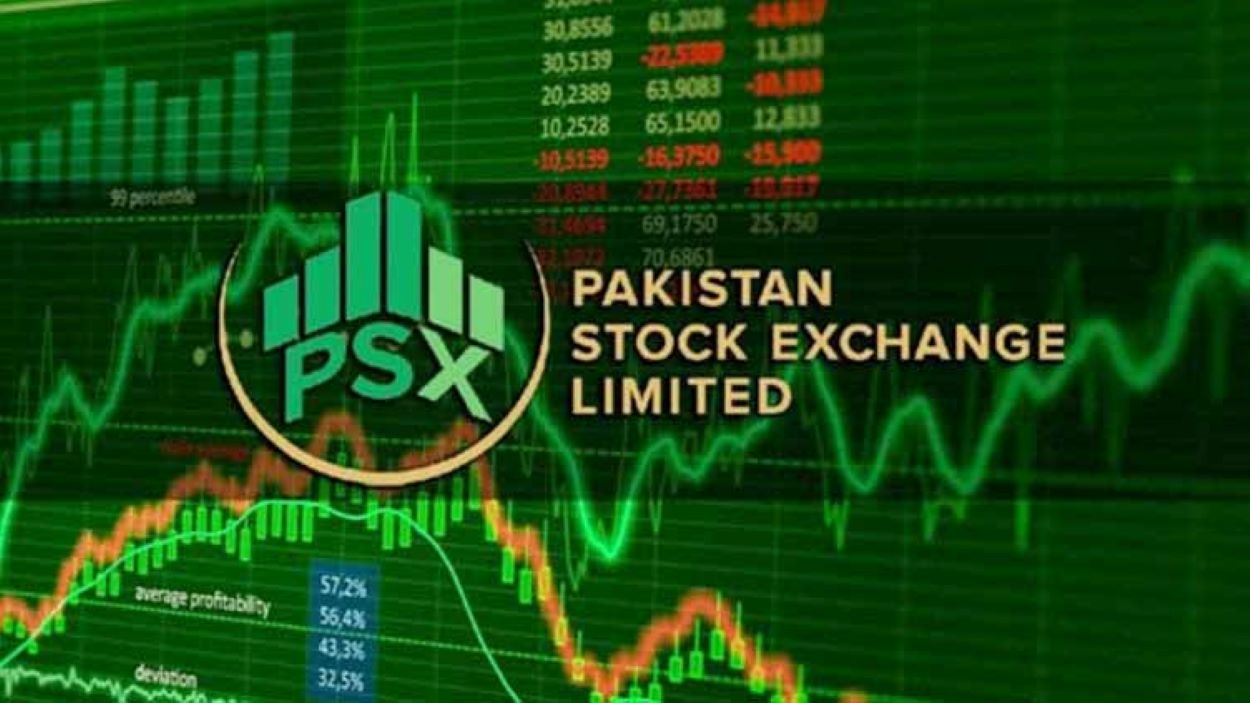The capital market experienced a significant rally on Wednesday as political tensions diminished following the Pakistan Tehreek-e-Insaf’s (PTI) decision to pause its three-day protest in Islamabad.
The Pakistan Stock Exchange’s (PSX) benchmark KSE-100 Index surged by 3,740.84 points, an increase of 3.96%, reaching an intra-day high of 98,315.19 points, signalling restored investor confidence.
The capital market witnessed a robust rally on Wednesday as political tensions eased following the Pakistan Tehreek-e-Insaf's (PTI) announcement to suspend its three-day protest in Islamabad.
The Pakistan Stock Exchange's (PSX) benchmark KSE-100 Index soared by 3,740.84 points,… pic.twitter.com/hQpf7WcLOm
— Developing Pakistan (@developingpak) November 27, 2024This upturn responded to PTI’s suspension of its “do-or-die” protest, which had disrupted the federal capital since November 24. Reducing political instability triggered a relief rally, boosting investor morale and drawing them back into the market.
Read: Crackdown Ends PTI Protest in Islamabad
Muhammad Saad Ali, Director of Research at Intermarket Securities, linked the market’s positive performance to this upbeat investor sentiment. “The market is rallying in relief today, recovering from yesterday’s significant losses following the suspension of PTI protests and government intervention,” he explained.
Read: Pakistan Stock Exchange Climbs Over 3,700 Points as Political Unrest Subsides
He further noted, “Banks are also contributing to today’s gains. The recent removal of the Minimum Deposit Rate (MDR) on certain corporate deposits is a significant boost for large conventional banks, likely enhancing their earnings and payouts for 2025 amidst declining interest rates.”
Read: State Bank Removes MDR for Corporate Deposits
The banking sector led the rally, fueled by the State Bank of Pakistan’s (SBP) decision to scrap the Minimum Profit Rate (MPR) requirement for deposits from financial institutions, public sector enterprises, and public limited companies.
Announced the previous Tuesday, this change has relieved conventional banks by reducing their obligation to mandatory deposit reserves and enhancing their profitability.
Historically, commercial banks had to maintain a minimum profit rate on all savings deposits linked to the SBP repo rate. The elimination of this requirement marks a pivotal shift in banking policy, designed to benefit large depositors and foster equitable banking practices.
Analysts anticipate that removing the MPR will bolster earnings and payouts for major banks in 2025, especially as interest rates continue to fall.
Furthermore, reversing excessive charges on large accounts with deposits over Rs1 billion has provided additional relief to depositors.
The SBP’s decision reflects its ongoing efforts to enhance transparency and safeguard the interests of banks and depositors, aiming to establish a more balanced and competitive banking landscape.






